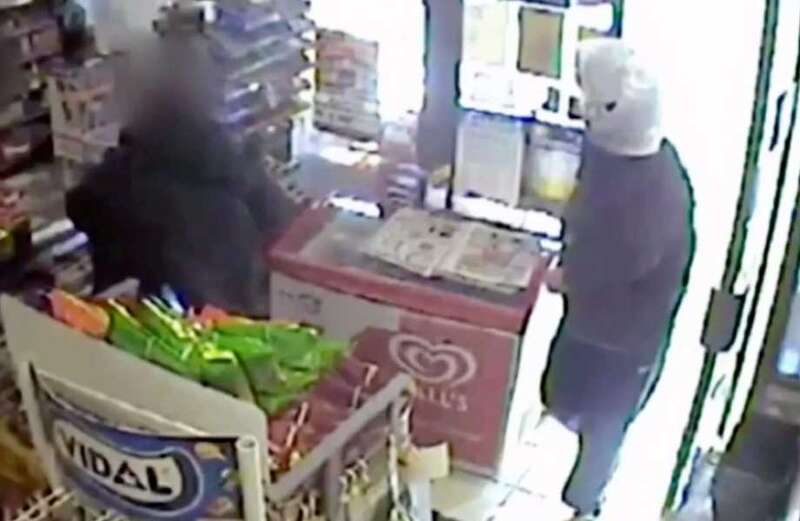FROM your local chippy to the corner shop and even veterinary clinics, small businesses across the country are being targeted by prolific shoplifters – and the majority are repeat offenders.
James Lowman, chief executive of the Association of Convenience Stores, says more must be done to help those struggling to keep their staff safe while battling to keep their businesses afloat.

He says: “Theft is not a victimless crime, it takes an enormous financial and personal toll on the retailers trying to run a small business in their communities.
“A startling new report from the Association of Convenience Stores found that crime cost convenience stores around £100million in 2022. There were almost a million recorded incidents of theft in stores that year.
Lethal threats, blatant theft
“While retail giants like Tesco have the budgets and the staff to tackle crime and outfit their security teams with state-of-the-art body cameras, small shops can’t afford that and it’s costing them a fortune in their hard-won earnings.
 From tongue scraping to saying no, here are 12 health trends to try in 2023
From tongue scraping to saying no, here are 12 health trends to try in 2023
“More than half (53 per cent) of thieves are repeat offenders — usually well known in the area — banking on the fact they won’t be challenged.
“Theft is also the biggest single trigger for abuse of colleagues and violent incidents in stores.
“I’ve heard reports of hammers, dirty needles and knives all being used in threats against store workers unless they open the till.
“Convenience retailers are most concerned about the sanctions being issued to offenders, the time taken for police to respond to incidents and a lack of visible police presence in the community.
“Thieves are being so brazen — sometimes stealing to order, or to fund drug addiction — walking into small shops, taking armfuls of products off the shelf, putting them into a bag and walking out, often without any attempt to hide what they’re doing.
“They’re stealing things they can re-sell.
“High-value items like meat, cheese, toiletries, coffee, alcohol and tobacco.
“I have heard reports of thieves pulling up at a convenience store in vans, their company name and number written down the side, who then go inside wearing their work-branded T-shirts, fill up their bag with items and leave. In broad daylight.
“What we need is targeted action to stop the repeat offenders who are stealing on a regular basis without any concern about being apprehended by the police.
“Some stores have a ‘no challenge policy’ as they’re concerned about threats of violence and, yes, people are more important than property. But the shoplifters know they won’t be challenged and take advantage of it.
 How to de-clutter if you have a beauty stash to last you a lifetime
How to de-clutter if you have a beauty stash to last you a lifetime
“Reporting a crime to the police can often be a tricky process and time consuming, so these thefts are treated as small crimes and might not be thoroughly investigated.
“Findings from our 2023 Crime Report show there were over 41,000 incidents of violence in the convenience sector last year, and 13 per cent of violent incidents end in injury.
“Retailers have continued to invest in their businesses to protect their colleagues and customers — but they need support.
“That’s why we are calling on police forces and the Government to do more to take retail crime seriously and support local businesses.
“We want a Most Wanted list of shop thieves to be introduced in each police force area.
“That means prolific offenders can be banned from retail areas or referred to rehabilitation programmes.
“It would involve local police posting mugshots on their website so retailers would be able to recognise them — and even get an order to ban them from their store.
Make the criminals known
“It also encourages forces to use the tools available to them to deal with anti-social behaviour, such as the Community Trigger and Community Remedy powers.
“These are tools the police can use to identify anti-social behaviour in the vicinity of a small store.
“That could be harassing customers or vandalism — but it’s about identifying that small percentage in communities who are responsible for crime.
“There must also be a review of the new legislation that makes attacking a public-facing worker — including shop staff — an aggravated offence.
“Finally there must be investment in rehabilitation programmes for offenders to break the cycle of offending and of ineffective punishment, as well as incentivising investment in crime prevention measures.
“All of these things together can be used as an effective way to fight theft from small shops and win the country-wide fight against small shop crime.”


































